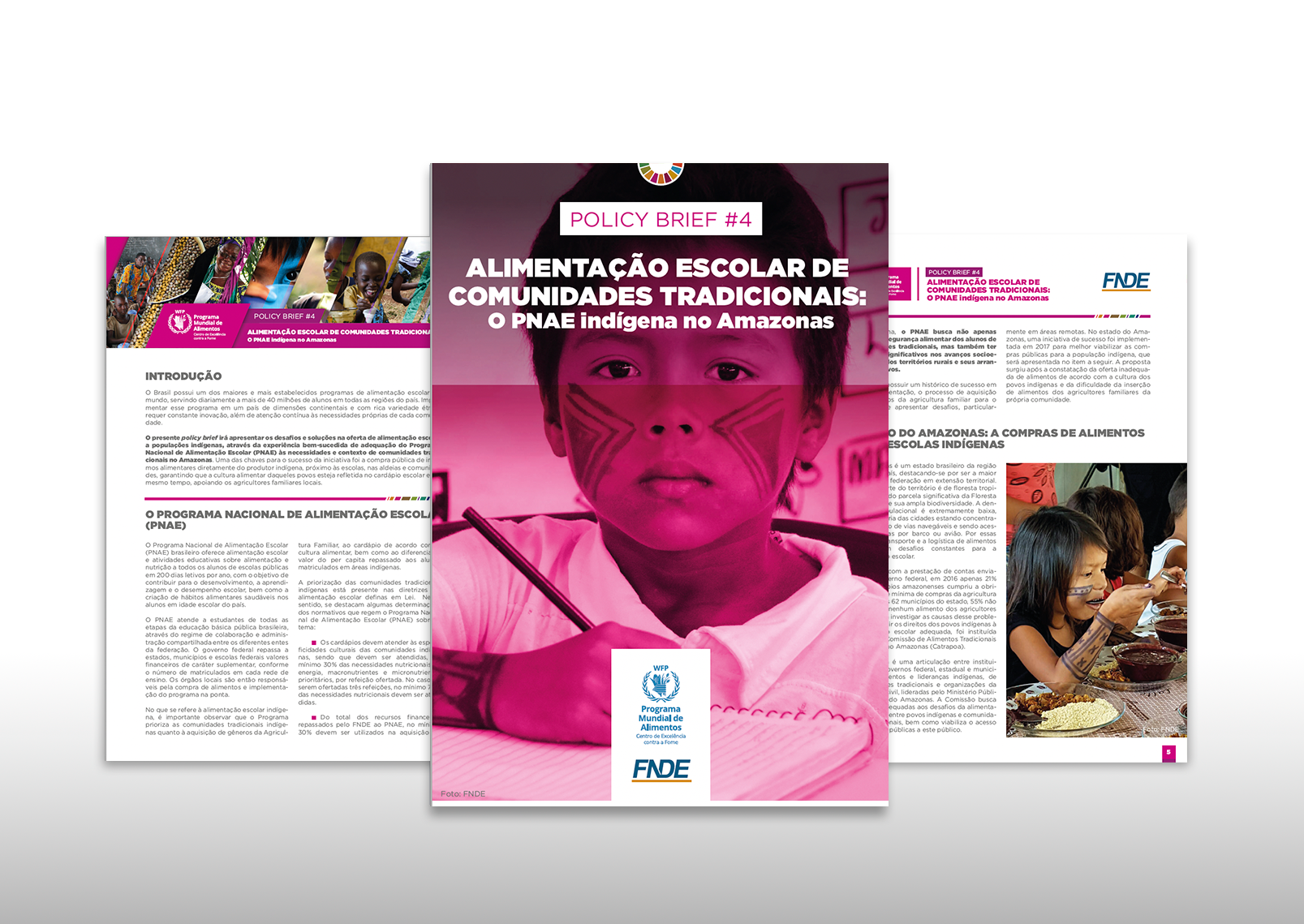
Brazil has one of the largest and most well-established school feeding programmes in the world, covering more than 40 million students daily in all regions of the country. Implementing this programme in a country of continental dimensions and rich ethnic variety requires constant innovation and continuous attention to the specific needs of each community. This new Policy Brief presents the challenges and solutions in supplying school meals to indigenous populations through the successful experience of adapting the National School Feeding Programme (PNAE) to the needs and context of traditional communities in Amazonas.
One of the keys to such success was the public purchase of foodstuffs directly from indigenous producers near schools, in villages and communities, which ensures that these peoples’ food culture is reflected in the school menu and, at the same time, supports local smallholder farmers. This publication is the result of the partnership between the WFP Centre od Excellence Against Hunger Brazil, the National Fund for Education Development and the Brazilian Cooperation Agency.




